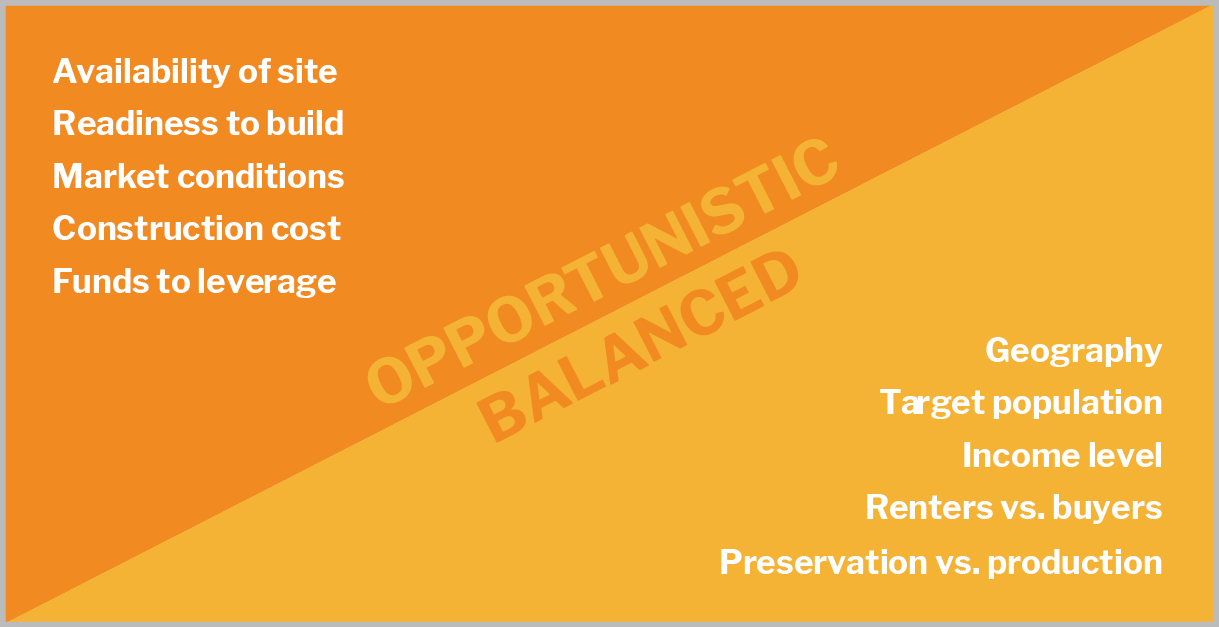
Funding and Feasibility Principles
San Francisco has longstanding funding principles to prioritize our capital projects (see Introduction). The principles for affordable housing preservation and production are different but no less important for strategic planning and expedient project delivery.
Whereas the standard capital planning funding principles are tiered, the principles for affordable housing prioritize feasibility, balanced across the many categories of need within the affordable housing sector.
To maximize the number of units delivered, and in order to deliver units across as broad a geography and as broad a spectrum of need as possible, San Francisco must be both opportunistic and balanced in its approach to housing production. The City, acting primarily through MOHCD, must respond to opportunities as they arise and support projects that are as cost efficient as possible. and address the needs of vulnerable populations. Project feasibility depends on the availability of City and non-City funds, cost and availability of development sites, and cost of construction. Without eligible funds in hand, a project cannot proceed. Affordable housing developers must compete on the open market for sites, or sites may come to the City through land dedication. Construction costs have jumped dramatically in recent years, and a project’s mix of uses and funds must be able to support those costs.
While focusing on cost efficiency and feasibility, the City prioritizes balancing the distribution of resources in an effort to address the range of need for affordable housing in San Francisco. The portfolio is inclusive of projects across neighborhoods, populations, and income levels. It must support renters and buyers through preservation and production strategies. With so many needs on so many fronts, public affordability supports multiple targets in consideration of the whole of San Francisco’s affordable housing needs.

